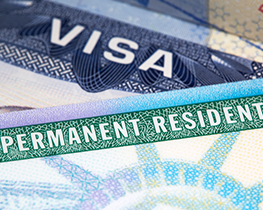
Immigration Consequences for Criminal Convictions
United States Immigration Law indicates that persons who are not citizens and are convicted of a crime could be inadmissible or deportable. Any person who is a legal resident of the United States and has had any criminal conviction should seek the advice of an immigration attorney before leaving the country, since such a conviction could make them inadmissible when trying to enter the United States again and could be taken to a detention center while their case is being resolved.
The following crimes are what most commonly make a person inadmissible or deportable:
Grounds of Inadmissibility
- Crimes involving Moral Turpitude
- Controlled substance offenses
- Multiple Convictions
- Drug Trafficking
- Prostitution and commercialized vice
- Serious Criminal Activity
- Human trafficking
- Money Laundering
Grounds for Deportability
- Crimes involving Moral Turpitude
- Multiple criminal convictions
- Aggravated felonies: murder, rape or sexual abuse of a minor including child pornography
- Escape
- Failure to register as a sex offender
- Controlled substance offenses
- Crimes involving certain firearms
- Various crimes: Espionage, sabotage, treason
- Domestic Abuse
- Human trafficking
Even if a person is inadmissible or deportable, they may qualify for a waiver if they have immediate family members who could suffer extreme suffering if the pardon is not granted, or if the criminal conviction occurred more than 15 years ago and the person can show to have been rehabilitated. To find out more about whether a waiver is available you can call attorney Carlos Sandoval at 954-306-6921 to arrange a consultation.





